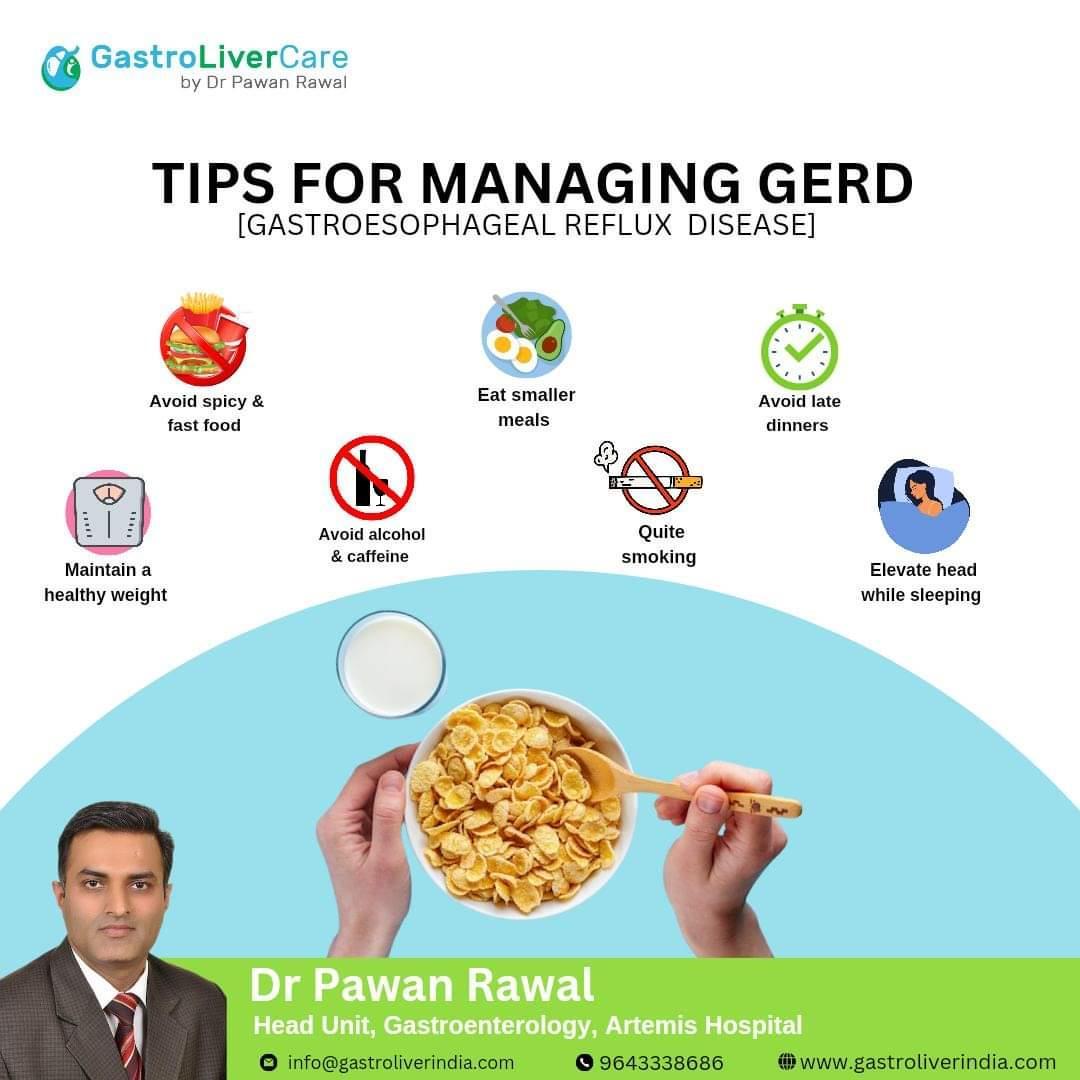

Advanced Gastro and Liver Care: How
It’s Improving Patient Outcomes
Gastroenterology and liver care have undergone remarkable advancements over the past decade, driven by technological innovation, research breakthroughs, and improved patientcentric practices. These developments have not only transformed how diseases are diagnosed and treated but have also significantly improved patient outcomes. At the forefront of this progress is Gastro Liver Care Clinic, a state-of-the-art medical facility that offers specialized care for patients dealing with complex gastrointestinal (GI) and liver conditions. By leveraging cutting-edge technology and adopting a multidisciplinary approach, clinics like Gastro Liver Care are setting new standards in gastroenterology and hepatology.

Early Detection Through Advanced Diagnostics
The foundation of successful gastro and liver treatment lies in early diagnosis. Diseases such as liver cirrhosis, hepatitis, and GI cancers often remain asymptomatic in their early stages, making timely diagnosis a challenge. However, advancements in imaging technologies and diagnostic tools have significantly enhanced the ability to detect these diseases earlier and more accurately.
Gastro Liver Care Clinic utilizes advanced diagnostic modalities, such as high-definition endoscopy, elastography (for assessing liver stiffness), and MRI cholangiopancreatography

(MRCP), to evaluate liver and GI tract conditions with precision. These technologies allow physicians to visualize abnormalities in greater detail, enabling earlier detection of liver fibrosis, polyps, tumors, and other conditions that could escalate if left untreated.
For patients, this means fewer invasive procedures, faster diagnoses, and an overall reduction in the uncertainty that often accompanies gastrointestinal and liver diseases.
Minimally Invasive Treatment Options
Traditionally, many gastrointestinal and liver conditions required open surgeries or complex interventions that came with longer recovery times, higher risk of complications, and increased patient discomfort. Today, minimally invasive procedures have become the gold standard for many treatments, offering a more patient-friendly approach without compromising effectiveness.
At Gastro Liver Care Clinic, minimally invasive techniques are routinely used to treat conditions such as gallbladder disease, gastrointestinal cancers, liver tumors, and inflammatory bowel disease (IBD). Procedures like laparoscopic surgery, endoscopic mucosal resection (EMR), and endoscopic retrograde cholangiopancreatography (ERCP) allow doctors to remove tumors, treat blockages, or manage chronic conditions with smaller incisions and quicker recovery times.
The impact on patient outcomes is profound. Minimally invasive procedures lead to reduced postoperative pain, faster recovery, shorter hospital stays, and a quicker return to daily activities. Patients also benefit from fewer surgical complications and a decreased risk of infection, contributing to overall higher satisfaction and better long-term health.


Personalized Medicine
and Tailored Treatment Plans
One of the most exciting advancements in gastro and liver care is the rise of personalized medicine. Understanding that each patient is unique, Gastro Liver Care Clinic focuses on creating tailored treatment plans that consider not only the disease but also the patient's overall health, lifestyle, and genetics.
Personalized treatment in gastroenterology and hepatology includes everything from individualized dietary plans for patients with liver disease to customized drug therapies for those with gastrointestinal cancers. Genomic testing and biomarker analysis are increasingly being used to predict how patients will respond to certain treatments, allowing doctors to choose the most effective therapies while minimizing potential side effects. For patients with chronic conditions like Crohn’s disease, ulcerative colitis, or hepatitis, personalized medicine offers a way to manage their conditions more effectively over the long term. By tailoring treatment to the individual, doctors at Gastro Liver Care can optimize outcomes, improve quality of life, and reduce the likelihood of relapse or complications.

Enhanced Patient-Centered Care
While technological advancements have undoubtedly played a crucial role in improving gastro and liver care, the human element cannot be overlooked. At Gastro Liver Care Clinic, patient-centered care is at the core of every treatment plan. This approach emphasizes clear communication, education, and emotional support, helping patients and their families navigate the often overwhelming landscape of complex GI and liver diseases.

The clinic's team of specialists works closely with patients from diagnosis through treatment and recovery, ensuring they are well-informed about their condition and the available treatment options. By prioritizing open dialogue and building trust, Gastro Liver Care Clinic empowers patients to make informed decisions about their health.
A multidisciplinary team, including gastroenterologists, hepatologists, surgeons, dietitians, and nursing staff, collaborates to ensure that each patient receives holistic care. This integrative approach ensures that all aspects of a patient’s health whether physical, emotional, or psychological are considered when devising treatment plans.
The Role of Advanced Technology in Improving Liver Care
Liver diseases, particularly liver cirrhosis, non-alcoholic fatty liver disease (NAFLD), and liver cancer, are becoming increasingly prevalent across the globe. One of the reasons Gastro Liver Care Clinic excels in treating these conditions is its adoption of cutting-edge technologies like FibroScan for non-invasive liver assessment and radiofrequency ablation (RFA) for treating liver tumors.
FibroScan, in particular, is a game-changer for patients with chronic liver disease. It provides a quick and painless assessment of liver fibrosis and steatosis, offering a more comfortable alternative to liver biopsies. This technology enables early intervention in patients with NAFLD, reducing the risk of progression to cirrhosis or liver cancer.
For patients with liver tumors, minimally invasive treatments like radiofrequency ablation and transarterial chemoembolization (TACE) offer targeted therapy that spares healthy tissue while destroying cancerous cells. These advancements not only improve survival rates but also allow patients to maintain a higher quality of life during treatment.
Conclusion
Advanced gastro and liver care are revolutionizing patient outcomes in ways that were unimaginable just a few decades ago. With a focus on early diagnosis, minimally invasive procedures, personalized treatment plans, and a patient-centered approach, facilities like Gastro Liver Care Clinic are setting the standard for excellence in gastroenterology and hepatology.
Patients today are benefiting from faster recoveries, fewer complications, and better longterm health, all thanks to the advancements in medical technology and a holistic approach to care. As research and innovation continue to advance, the future of gastro and liver care looks even more promising, offering hope to patients facing some of the most challenging conditions.
